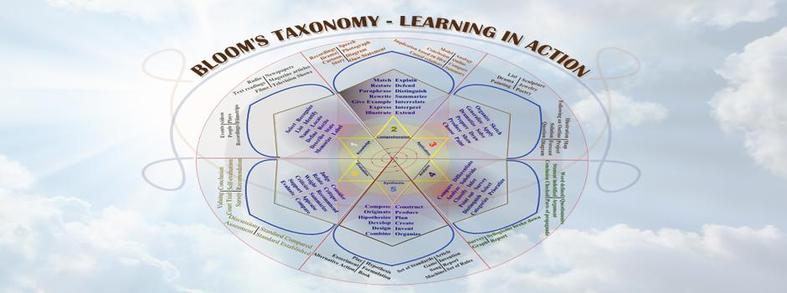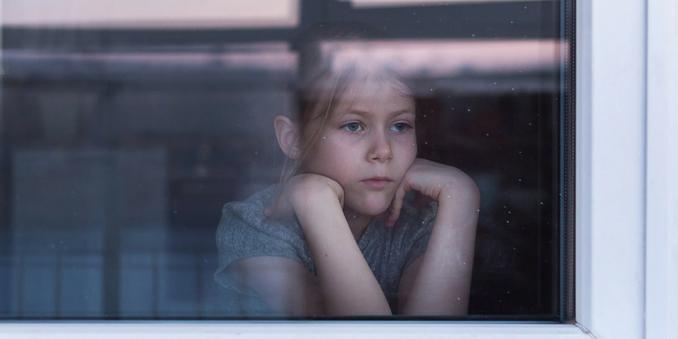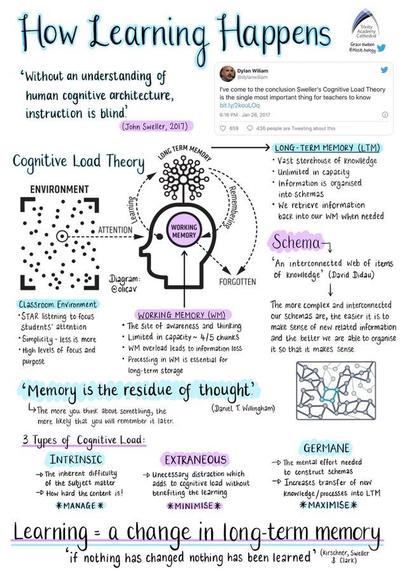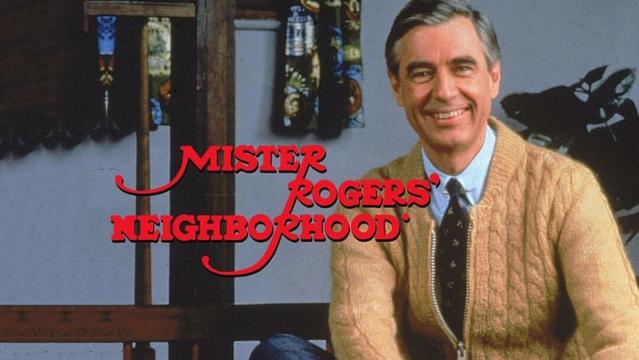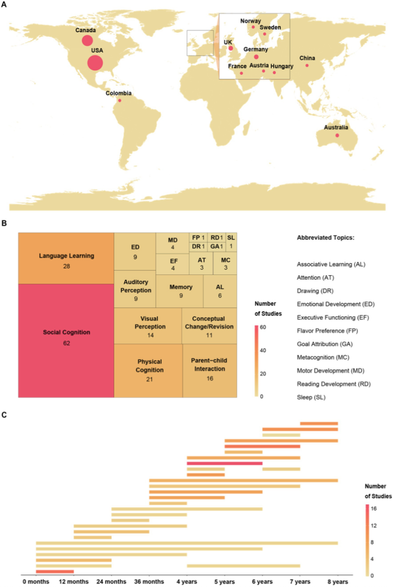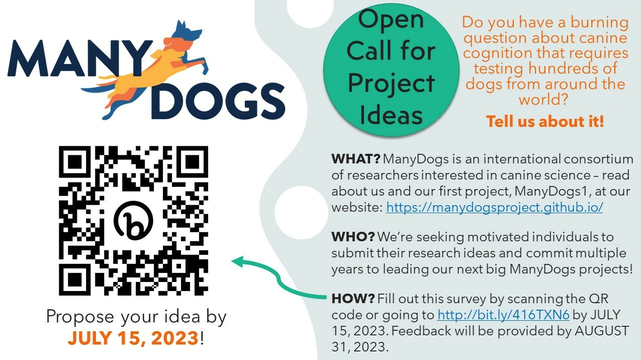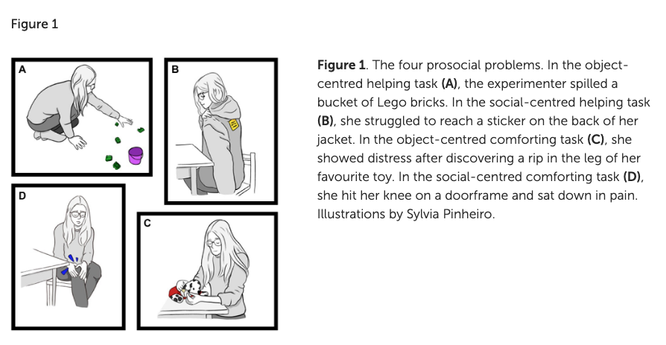🧠 Evidence-based insights: How riddles support healthy brain development in children.
Essential reading for parents, educators, and anyone interested in child psychology and cognitive development.
Science-backed brain building: https://riddlesquest.com/why-riddles-are-important-kids-mental-development/
#ChildDevelopment #ParentingScience #BrainDevelopment #EducationalPsychology #CognitiveDevelopment #ParentingTips
#cognitivedevelopment
Bloom’s Taxonomy Revised guides the Education for Life Program, integrating cognitive, affective, and psychomotor learning for a holistic approach. It supports open-source, adaptable education through curriculum, teaching strategies, learning tools, and classroom design for lifelong learning.
https://onecommunityglobal.org/blooms-taxonomy/
#BloomsTaxonomy #EducationForLife #HolisticLearning #OpenSource #LifelongLearning #TeachingStrategies #CognitiveDevelopment #LearningTools #InnovativeEducation
Childhood neglect linked to slower working memory development, study finds https://www.psypost.org/childhood-neglect-linked-to-slower-working-memory-development-study-finds/?utm_source=dlvr.it&utm_medium=mastodon #ChildhoodNeglect #CognitiveDevelopment #WorkingMemory #ExecutiveFunction #PsychologyResearch
Boost Your Mood and Brainpower with Essential Nutrients!
#BrainHealth #NutritionalScience #MoodBoosters #MentalWellness #HealthyMind #Nutrients #Calcium #Zinc #Copper #Iron #Selenium #Iodine #Chromium #WilsonDisease #Neuroplasticity #CognitiveDevelopment #HealthyLiving
🧠 Neuroscience, Game Design, and Design Thinking:
Games influence not just how we entertain ourselves but also how we think, feel, and interact with the world.
As game design continues to evolve, neuroscience
offers insights into how games can influence socio-cognitive development—from executive functions to social cognition and emotional regulation. When paired with design thinking, the potential for innovation in game design education becomes truly exciting.
Games are not just immersive worlds—they are powerful tools for influencing the brain's learning circuits. Research shows that well-designed games can:
- Enhance working memory and cognitive flexibility by creating environments that challenge players to think on their feet.
- Improve decision-making and problem-solving skills through adaptive feedback loops.
- Promote social learning by simulating complex social scenarios that engage mirror neurons, helping players develop empathy and social awareness.
This is where design thinking plays a pivotal role in game design. By embedding a neuroscience and cognitive science-informed approach into the design thinking process, we can empower future designers to create games that not only entertain but also foster cognitive development. Using techniques such as rapid prototyping, empathy mapping, and iterative feedback, designers can craft games that target key neural circuits involved in attention, memory, and empathy.
Using design thinking principles to create games that address real-world challenges, from mental health (rehabilitation as well) to social interaction, based on neural and cognitive mechanisms is really fascinating!
#NeuroscienceInGames #CognitiveDevelopment #GameDesignEducation #DesignThinking #Neuroplasticity #GameDesign #CognitiveScience
How LEARNING Happens
Learning = a change in long-term memory.....
(c) Grace Hudson via TCEA
#Education #Teaching #Learning #Memory #CognitiveDevelopment #CognitiveFunction #LanguageLearning
1) An older article but one I enjoy every time it resurfaces: Mister Rogers’ Nine Rules for Speaking to Children, or how his careful phrasing (“Freddish”) spoke to young audiences
"Rogers understood and acknowledged the unique power and privilege of his role ... Rogers wanted us to know, says Greenwald, “that the inner life of children was deadly serious to them,” and thus deserving of care and recognition."
https://www.openculture.com/2019/05/mr-rogers-nine-rules-for-speaking-to-children-1977.html
New paper from the #DevelopmentalPsychology side of the Kuhlmeier lab
The widespread adoption of new methods for testing children does not typically occur over a matter of months. Yet, the pandemic created a sudden need among many research groups to use online testing. We report results from a survey of researchers on experiences with online testing and discuss challenges, limitations, and opportunities.
https://doi.org/10.3389/fpsyg.2023.1160203
#CognitiveDevelopment #Cognition
#OpenScience
#ResearchMethods
Are you ready for an agilists’ crash course in neuroscience and neurobiology?🧠 Watch this video: https://youtu.be/VgT3AqKhI6U
You’ll learn how to adapt the concepts and tools from neuroscience and psychotherapy in a manner appropriate for our roles as agile coaches and scrum masters, in order to help your team.
The magic of #Interaction
“The amount of adult #Speech #Children are exposed to in their early years may help to shape the structure of their #Brains. Studies have previously suggested there are benefits to #Talking to young children, with research suggesting it can help improve their language processing and boost their vocabularies.”
https://www.theguardian.com/science/2023/may/15/talking-to-babies-may-help-shape-brain-structure-research-finds
#CognitiveDevelopment #Neuroscience #Relationship #Relating #Reciprocity #Gaze #Carers Early #Childhood #Speech #Pathology #Language
ManyDogs (@ManyDogs) is an international consortium of researchers interested in #canine science.
We are soliciting proposals for our next project. Do you have ideas?
Check out the info below and see: bit.ly/416TXN6
#AnimalCognition #AnimalBehaviour #AnimalBehavior #ComparativeCognition #CognitiveDevelopment #Cognition #DevelopmentalPsychology
#MastodonTips: #Hashtags to follow if you are interested in:
Climate: #ClimateChange #Sustainability #ClimateCrisis
Gardening: #GardeningMastodon #UrbanGardening #Herbs
Geology: #Volcano #GeologyRocks #Fossils
Humour: #Comedy #Funny #Joke #Memes
Literature: #SciFi #Fiction #Nonfiction #Novels
Music: #MusicNews #NowPlaying #Records
Psychology: #SocialPsychology #Neuroscience #CognitiveDevelopment
Television: #TV #ClassicTelevision #Series
Videogames: #Gaming #VideoJuegos #RetroGaming
@edutooters
Over the last decade, #scientists have explored the association between #GutMicrobiota & the #brain & affected #neurologic manifestations. These #studies have indicated that #gut #microbiota #influences #neurogenesis , #behavior , #emotions , #CognitiveDevelopment & progression of #neuropsychiatric diseases. A #NewStudy published in the journal #FrontiersInMedicine reviewed recent literature on the link between gut microbiota, the brain & #NeurologicalDisorders.
https://www.news-medical.net/amp/news/20230319/Gut-microbiomes-and-mental-health-how-do-they-interact.aspx
ICYMI: Two new bee social learning papers have come out.
Social signal learning of the waggle dance in honey bees
https://www.science.org/doi/10.1126/science.ade1702
Bumblebees acquire alternative puzzle-box solutions via social learning
https://journals.plos.org/plosbiology/article?id=10.1371/journal.pbio.3002019
#AnimalCognition #ComparativeCognition #AnimalBehavior #AnimalBehaviour #Cognition #CognitiveDevelopment
New paper from the #DevelopmentalPsychology side of the Kuhlmeier lab on shyness & prosocial behavior: https://www.frontiersin.org/articles/10.3389/fpsyg.2023.1128588/full
We presented 3.5- to 4.5-year-olds with problems that varied, in a 2 x 2 within-subjects design, by the type of intervention required (helping or comforting) and the source of the problem (within the experimenter’s personal space or distanced from her). Shyer children were not less likely to intervene, but they were slower to do so.
There‘s a job opening for a #PhD student / doctoral researcher (fully funded, salary & research costs, 4 years) in my @snsf_ch #Ambizione project on the neuro-cognitive development of language processing at the University of Zurich @uzh. The PhD student will be advised by me and @moritzdaum. Please share widely! https://t.uzh.ch/1qP #psycholinguistics #cognitivedevelopment #cogsci #psychology #linguistics
Something I have been thinking about recently: What is the difference between cognition and cognitive development?
Are they both describing change in a system – caused by the same processes – but at different scales of time and levels of organisation, or are they describing different phenomena and causal processes, or a bit of both?
Curious to hear what others think. Feel free to elaborate!
@cognition @cogsci @psychology #CognitiveDevelopment #PhilosophyOfScience #PhilosophyOfMind
New, extremely careful research suggests:
Fully 1/3 of effect of growing up in a poor #neighborhood on children's #CognitiveDevelopment is due to #AirPollution
"Although most prior research about the effects of concentrated poverty focuses on older children and posits mechanisms involving differences in socialization or institutional resources, we provide evidence that the etiology of neighborhood effects lies earlier [...] and is rooted in environmental
inequalities"
